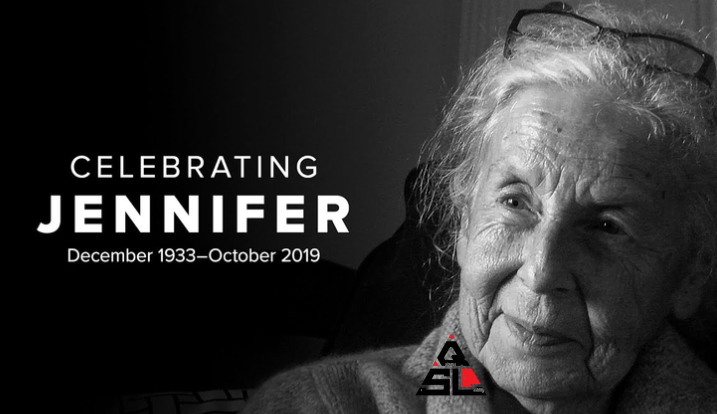
Jennifer Davids Poet Biography – Who is Jennifer Davids Poet? Jennifer Davids, an unwavering activist, poet, and dedicated champion of social justice, left a lasting impact on both the anti-apartheid movement and global human rights advocacy. A South African by birth, Davids devoted much of her life to fighting racial oppression and promoting equality, serving as a beacon of hope and resilience in the face of systemic injustice.
In this article, we look into the life, contributions, and legacy of Jennifer Davids, celebrating her role as a poet and an activist who tirelessly worked for the cause of freedom, dignity, and human rights.
Jennifer Davids Poet Biography
Jennifer Davids, born in Johannesburg, South Africa, in 1933, was a dynamic and passionate activist who used her voice to challenge injustice throughout her life. She was best known for her role in the anti-apartheid movement, particularly her efforts in the United States to mobilize resources and build international support for South Africa’s liberation. Beyond her activism, she was also a poet who captured the struggles and triumphs of the marginalized in her work, leaving a legacy that transcended geographical borders.
Early Life and Family Background
Jennifer’s early years were shaped by a Jewish middle-class upbringing in Johannesburg. Raised by a pediatrician father and a pharmacist mother, her family was deeply involved in community service. Her maternal grandmother, who had roots in Germany, helped Jennifer understand the complexities of Jewish history and the importance of standing up against oppression. It was through her family’s history that Jennifer developed a sense of duty to fight for justice, particularly as it pertained to religious and racial discrimination.
The First Political Awakening
In 1948, South Africa’s National Party came to power, implementing the infamous apartheid system, which segregated people based on race and enforced white supremacy. Jennifer’s first act of defiance came when she argued with her Afrikaans teacher over the implications of apartheid. This early confrontation ignited a lifelong commitment to opposing racial injustice, a passion that would shape her activism for decades.
Journey to Exile: Leaving South Africa
As a young woman, Jennifer’s political activism deepened at the University of the Witwatersrand, where she immersed herself in discussions about colonialism, foreign capital, and the need for change in South Africa. However, the Sharpeville Massacre of 1960 and the subsequent banning of political organizations forced Jennifer, her husband, and two young children to seek refuge in the United States in 1966. This was the beginning of her influential role in shaping global opposition to apartheid.
Joining the American Committee on Africa
In the United States, Jennifer found a new platform for her activism. She joined the American Committee on Africa (ACOA), an organization committed to supporting liberation movements across Africa. Her work at ACOA included testifying before Congress on U.S. financial ties to South Africa, urging divestment from corporations that maintained apartheid. Her sharp insights and dedication to the cause earned her a prominent place in the fight against apartheid.
The Divestment Movement and Role in Advocacy
Jennifer became a leading voice in the divestment movement in the 1970s, which sought to persuade U.S. institutions to sever ties with companies supporting apartheid. Her tireless advocacy, including frequent speaking engagements on college campuses, raised awareness about the complicity of U.S. corporations in apartheid. Her approach linked the struggles of South African workers with those of American laborers, demonstrating the interconnectedness of global struggles for justice.
Leadership in the Anti-Apartheid Struggle
In 1981, Jennifer became the Executive Director of the American Committee on Africa and its non-profit affiliate, The Africa Fund. She worked closely with figures like Dumisani Kumalo and cultural leaders such as Little Steven to galvanize support for divestment. She believed that change would come not just through political pressure but through grassroots mobilization, tapping into the power of faith communities, unions, students, and local officials. Her leadership helped orchestrate the growing global movement to isolate apartheid South Africa.
Cultural Advocacy and Collaborations
One of Jennifer’s most notable achievements was her role in harnessing the power of culture to fight apartheid. She worked alongside musicians and entertainers, including Little Steven, to produce the “Sun City” album, which raised awareness about the issue and funneled proceeds to anti-apartheid organizations. This initiative, coupled with her work with the Religious Action Network, demonstrated Jennifer’s ability to unite diverse groups under a common cause.
Work with Nelson Mandela and the U.S. Visit
When Nelson Mandela was released from prison in 1990, Jennifer played a pivotal role in organizing his first visit to the United States. She was instrumental in ensuring that Mandela addressed Congress and met with political leaders, cultural icons, and activists who had been central to the anti-apartheid movement. This moment symbolized the culmination of years of hard work and solidarity across the world.
Retirement and Continued Advocacy
Jennifer retired from the American Committee on Africa in 2000, but her commitment to social justice never waned. She continued to consult on international issues, particularly those impacting Southern Africa. She also remained involved with organizations like Shared Interest and Thembani International Guarantee Fund, which focused on economic development in disenfranchised communities.
Awards and Recognition
In 2011, the South African government honored Jennifer with The Order of the Companions of O.R. Tambo in Bronze, recognizing her lifetime of service to the anti-apartheid struggle and her work in education and human rights. This prestigious award symbolized the deep gratitude felt by the South African people for her contributions to their liberation.
Legacy and Impact on Modern Activism
Jennifer Davids’ work has left an indelible mark on modern activism. She was a trailblazer in linking global struggles for justice, advocating for the interconnectedness of movements worldwide. Her dedication to human rights and social justice continues to inspire activists around the globe, particularly those working for racial equality and economic justice.
Personal Reflections and Philosophy
Throughout her life, Jennifer remained grounded in her belief that social justice was a universal cause. She often spoke of the importance of building coalitions and uniting diverse groups around shared goals. Her personal philosophy was one of compassion, resilience, and unwavering commitment to the fight for human dignity.
Conclusion
Jennifer Davids was not just an activist or a poet; she was a symbol of hope and resistance against injustice. Her life’s work reminds us of the power of collective action, the importance of solidarity, and the need to continuously strive for a more just and equal world. Her legacy continues to shape the ongoing global struggle for freedom and human rights.
FAQs about Jennifer Davids
1. Who was Jennifer Davids and what was her role in the anti-apartheid movement?
Jennifer Davids was an anti-apartheid activist who worked tirelessly to raise awareness about apartheid in South Africa. She played a key role in organizing the divestment movement in the U.S. and worked closely with the African National Congress and international figures like Nelson Mandela.
2. What achievements did Jennifer Davids receive for her activism?
Jennifer was awarded The Order of the Companions of O.R. Tambo in Bronze by the South African government in 2011, in recognition of her significant contributions to the anti-apartheid struggle and her work in human rights and education.
3. How did Jennifer Davids contribute to the global anti-apartheid movement?
Jennifer helped to organize grassroots movements in the U.S., pushing for divestment from companies supporting apartheid and raising awareness about the connections between U.S. corporations and the apartheid regime.
4. What impact did Jennifer Davids have on modern activism?
Her efforts to build international coalitions and connect various global movements for justice have influenced modern activism. She showed how global solidarity could create meaningful change, particularly in struggles for racial and economic justice.
5. What was Jennifer Davids’ approach to activism?
Jennifer believed in the power of unity and collaboration. She focused on building broad coalitions across different sectors of society, including faith communities, unions, students, and cultural figures, to bring about change.





